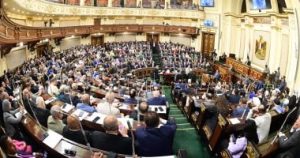The Israeli government’s decision to occupy Gaza City raises concerns in Tel Aviv due to the severity and ambiguity of the move, as well as its costly economic repercussions after more than 22 months since the war in the Gaza Strip. Benjamin Netanyahu’s government has not achieved the declared war goals in Operation “Gideon’s Vehicles 1,” which cost about 7.2 billion dollars. Moreover, the call-up of hundreds of thousands of reservist soldiers causes high costs and negative repercussions on Israel’s financial situation. Estimates in Israel indicate that Operation “Gideon’s Vehicles 2” will cost the treasury an additional 3.3 billion dollars, while the expected deficit in the 2025 budget is estimated to rise by 5.2%. The Israeli Knesset committee approved last week the extension of “Order 8” concerning the call-up of reservists, as the legal need to extend this order officially emerged due to the prolonged war.
The Israeli army began calling up reservists at the start of the Gaza extermination war using “Order 8,” which allows an urgent and wide call-up in emergencies, such as war, with an initial temporary government mandate without the Knesset’s immediate approval. Chief of Staff Eyal Zamir approved the “central idea” of the plan to re-occupy the entire Gaza Strip after the Israeli mini-cabinet approved on August 8 a plan proposed by Netanyahu, which sparked global criticism. The plan starts with occupying Gaza City by displacing nearly one million Palestinians southwards, then surrounding the city and conducting incursions into residential areas amid escalating talk in Israel about a desire to systematically destroy Gaza.














Recommended for you
Exhibition City Completes About 80% of Preparations for the Damascus International Fair Launch
Talib Al-Rifai Chronicles Kuwaiti Art Heritage in "Doukhi.. Tasaseem Al-Saba"
Unified Admission Applications Start Tuesday with 640 Students to be Accepted in Medicine
Egypt Post: We Have Over 10 Million Customers in Savings Accounts and Offer Daily, Monthly, and Annual Returns
His Highness Sheikh Isa bin Salman bin Hamad Al Khalifa Receives the United States Ambassador to the Kingdom of Bahrain
Al-Jaghbeer: The Industrial Sector Leads Economic Growth